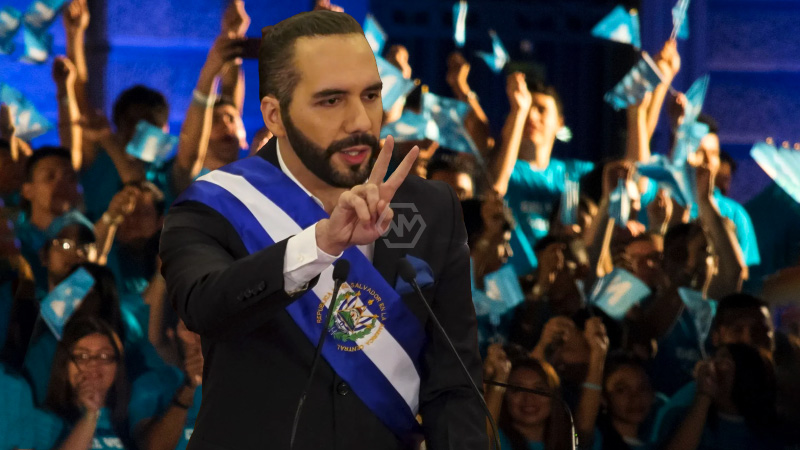- El Salvador’s legislature approved indefinite presidential reelection and extended terms to six years.
- President Bukele now holds unchecked control over the country’s government institutions.
- Critics warn the move threatens democracy and accelerates authoritarian consolidation.
El Salvador’s Legislative Assembly, dominated by President Nayib Bukele’s New Ideas party, has enacted sweeping constitutional reforms that eliminate presidential term limits and extend the term length from five to six years.
These reforms follow years of power consolidation by Bukele, who has systematically neutralized judicial and legislative checks. In 2021, his party replaced top Constitutional Court judges, clearing the way for his controversial 2024 reelection.
From Populism to Power Grab: El Salvador Legalizes Bukele’s Indefinite Rule
Bukele’s popularity has surged largely due to his hardline crackdown on gangs, which has dramatically reduced violence across the country. Under a prolonged state of emergency since 2022, over 87,000 alleged gang members have been detained. While many Salvadorans credit Bukele for restoring safety, human rights organizations have documented thousands of arbitrary arrests and hundreds of deaths in state custody.
The constitutional changes also accelerate the electoral calendar, shifting national elections to March 2027. This timeline adjustment allows Bukele to seek reelection sooner under the new legal framework. The move is seen by analysts as a calculated strategy to entrench his dominance while opposition forces remain disorganized and weak.
The political opposition in El Salvador is now reduced to a symbolic presence, with only a handful of lawmakers voting against the constitutional reforms. Civil society groups and independent journalists report increasing levels of surveillance, harassment, and exile. Legal professionals investigating corruption have faced arrest, further silencing dissent.
International reactions have been critical but muted. While the Organization of American States and the U.S. State Department issued statements condemning the democratic rollback, no concrete measures have followed. Bukele has brushed off criticism with a mix of sarcasm and populist rhetoric, appealing directly to his base with messages that portray him as a national savior defying global elites.
El Salvador’s legal transformation under Bukele signals a dramatic departure from democratic norms, raising urgent questions about the future of governance in the country.
“The death of democracy is not likely to be an assassination from ambush. It will be a slow extinction from apathy, indifference, and undernourishment.” — Robert M. Hutchins



